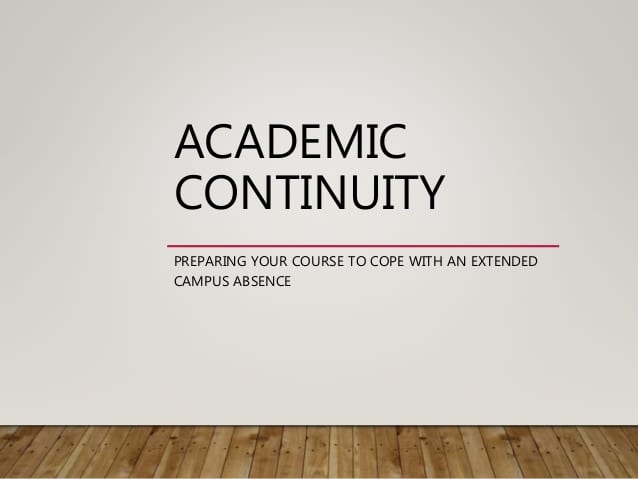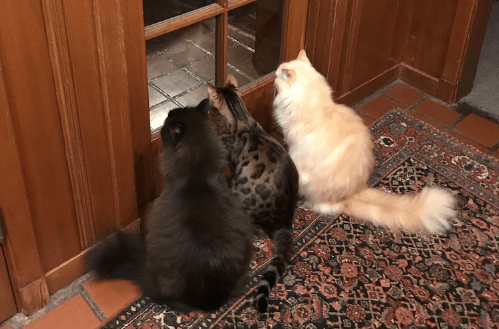
Category Archives: 2018-19
2019 Senate VP Candidates & Statements
[embeddoc url=”https://blogs.uoregon.edu/senate/files/2019/05/Senate-VP-Candidate-Berkman_Statement_190529.pdf” download=”all” viewer=”google” ]
Senate Meeting Agenda – June 5, 2019
DRAFT
Location: EMU 145 & 146 (Crater Lake rooms)
3:00 – 5:00 P.M.
3:00 P.M. Call to order
- Introductory Remarks; Senate President Bill Harbaugh
- Remarks: President Schill
3:29 PM Approval of Minutes
- February 13, 2019 and May 22, 2019
3:30 PM Business / Reports:
- Vote on Other Curricular Matters included in the Curriculum Report: A change to the last date for students to add courses. Full Text: “The last day to add a course is to be moved from the Sunday preceding the second week at 11:59 p.m. to the Monday of the second week at 11:59 p.m.” Frances White.
- Vote: US18/19-21: Approval of Curriculum Report, Spring 2019; Frances White
- Vote on new Senate VP / President Elect. Elizabeth Skowron (Psychology, Senate Vice President)
- Pass the gavel
- UO Senate Award for Shared Governance, Transparency and Trust: To Karen Ford (College of Arts & Sciences and English), Jessica Price (General Counsel’s Office), Brent Walth (Journalism)
- UO Senate Leadership and Service Award for Officers of Administration: To Annie Herz (Human Resources)
- UO Senate Classified Staff Leadership Award: To Terry McQuilkin (UO Libraries)
- UO Senate Wayne T. Westling Award: To Karen Ford (College of Arts & Sciences and English), Leslie Opp-Beckman (American English Institute)
- Another recognition
4:50 PM Open Discussion
4:52 PM Other Reports
4:54 PM Notice(s) of Motion
4:56 PM Other Business
5:00 PM Adjourn to Faculty Club, all invited!
US18/19-21: Approval of Curriculum Report, Spring 2019
Date of Notice: April 10, 2019
Current Status: Approved June 5, 2019
Motion Type: Legislation
Sponsor: UO Committee on Courses
Motion
Section I
1.1 WHEREAS the UO Committee on Courses has submitted the Spring Term 2019 Preliminary Curriculum Report for University Senate review.
Section II
2.1 THEREFORE BE IT MOVED the University Senate approves the Spring 2019 Curriculum Report as submitted by the UO Committee on Courses.
Inquiry & Response Regarding UO Academic Freedom Policy
From: Mike Schill <mschill@uoregon.edu>
Subject: RE: Reporting a potential violation of UO’s Academic Freedom Policy
Date: May 29, 2019 at 9:35:40 AM PDT
To: Senate President <senatepres@uoregon.edu>, Jayanth Banavar <banavar@uoregon.edu>, Kevin Reed <ksreed@uoregon.edu>
Dear Bill,
I do not believe that there is sufficient evidence here to warrant an investigation of Kyle Henley. I have asked Kyle what he meant when he asked Dave to request that all media inquiries go to Molly Blancett. His response was that he wanted there to be a consistent response about what the provost was proposing so that rumors filled with inaccuracies didn’t spread. While the cuts we have been required to make are expressed in dollars, they will, by necessity, be felt by human beings. It is very important that accurate information be given to the media and thereby transmitted to potentially affected individuals.
I believe Kyle when he states that he never meant for this request to silence dissent on campus with respect to the wisdom or necessity of the cuts. Indeed, we have encouraged folks to give us their views even when those views have been inaccurate, insulting and/or entirely infeasible. Kyle joins me in his belief in the value of free speech and respectful, robust debate on campus, even when that speech is critical of Johnson Hall.
Kyle’s explanation rings true with me so I am rejecting your request for an investigation.
I appreciate your commitment to free speech.
Best,
Mike
Michael H. Schill
President and Professor of Law
University of Oregon
From: Senate President <senatepres@uoregon.edu>
Sent: Tuesday, May 28, 2019 8:16 PM
To: Mike Schill <mschill@uoregon.edu>; Jayanth Banavar <banavar@uoregon.edu>; Kevin Reed <ksreed@uoregon.edu>
Subject: Reporting a potential violation of UO’s Academic Freedom Policy
Reporting a potential violation of UO’s Academic Freedom Policy:
Dear President Schill, Provost Banavar, and General Counsel Reed:
We are writing as UO Senate President and Immediate Past President, to report a potential violation of UO’s Academic Freedom Policy by VP for University Communications Kyle Henley.
UO’s Academic Freedom Policy was adopted by the UO Senate on 4/9/2014 and signed by then UO President Michael Gottfredson on 5/28/2014. The full policy is appended below.
This policy states:
“… The University of Oregon encourages and supports open, vigorous, and challenging debate across the full spectrum of human issues as they present themselves to the university community. The University of Oregon protects free speech through Policy No. 01.00.16. This policy on Academic Freedom builds on these existing commitments by recognizing the special contexts of scholarship, teaching, governance, and public service. …
- POLICY AND SHARED GOVERNANCE. Members of the university community have freedom to address, question, or criticize any matter of institutional policy or practice, whether acting as individuals or as members of an agency of institutional governance.”
The email below, sent on 4/11/2019 by the Provost’s Office Communications Director David Austin at VP for Communication Kyle Henley’s request, to Angela Wilhems, Provost Banavar, and Exec Provost Scott Pratt, directs them to email the directors of the Labor Education and Research Center, the Museum of Natural and Cultural History, and the Jordan Schnitzer Museum of Art, states
“Kyle [Henley] wants to make sure that people from these areas don’t “freelance” and talk to the media about their frustrations.”
The email goes on to tell these Directors to run media inquiries through Central Communications – meaning Mr. Henley’s office. This sort of warning to administrators not to speak freely to the press is exactly the sort restriction on academic freedom that UO’s Academic Freedom Policy is meant to prohibit. The policy says
“Members of the university community have freedom to address, question, or criticize any matter of institutional policy or practice, whether acting as individualsor as members of an agency of institutional governance.” (Emphasis added.)
Restrictions such as that imposed by this email prevent the university community and the public from obtaining accurate information about the governance of the university, and they reduce trust in the university administration. As President Schill in his 5/17/2019 “Open Mike” email put it,
“Transparency is the best policy. Whenever possible administrators should be as forthcoming as possible, subject to the privacy rights of members of our community.”
I ask you to investigate this potential violation of the Academic Freedom Policy, determine if there have been other similar violations by Central Communications, and take appropriate disciplinary actions to discourage further such violations.
Bill Harbaugh
UO Econ Prof & Senate Pres
http://senate.uoregon.edu
Chris Sinclair
UO Math Assoc Prof & Immediate Past President of the Senate
Academic Freedom Policy at https://policies.uoregon.edu/content/academic-freedom-0:Academic Freedom
The University of Oregon encourages and supports open, vigorous, and challenging debate across the full spectrum of human issues as they present themselves to the university community. The University of Oregon protects free speech through Policy No. 01.00.16. This policy on Academic Freedom builds on these existing commitments by recognizing the special contexts of scholarship, teaching, governance, and public service.
SECTION 1
- SCHOLARSHIP. The University’s research mission requires that members of the UO community have autonomous freedom to conduct research and produce creative work, and to publish and disseminate that work, limited only by the standards and methods of accountability established by their profession and their individual disciplines.
- TEACHING. The University’s responsibility to help students to think critically and independently requires that members of the university community have the right to investigate and discuss matters, including those that are controversial, inside and outside of class, without fear of institutional restraint. Matters brought up in class should be related to the subject of courses or otherwise be educationally relevant, as determined primarily by the faculty member in charge of the class.
- POLICY AND SHARED GOVERNANCE. Members of the university community have freedom to address, question, or criticize any matter of institutional policy or practice, whether acting as individuals or as members of an agency of institutional governance.
- PUBLIC SERVICE. Public service requires that members of the university community have freedom to participate in public debate, both within and beyond their areas of expertise, and to address both the university community and the larger society with regard to any matter of social, political, economic, cultural, or other interest. In their exercise of this freedom, university community members have the right to identify their association or title, but should not claim to be acting or speaking on behalf of the University unless authorized to do so.
SECTION 2
These freedoms derive immediately from the university’s basic commitment to advancing knowledge and understanding. The academic freedoms enumerated in this policy shall be exercised without fear of institutional reprisal. Only serious abuses of this policy – ones that rise to the level of professional misbehavior or professional incompetence – should lead to adverse consequences. Any such determinations shall be made in accordance with established, formal procedures involving judgment by relevant peers.
Austin Email

US18/19-20: Approval of 2019 Senate Award Nominees
Date of Notice: April 10. 2019
Current Status: Notice Given
Motion Type: Legislation
Sponsor: Senate Exec Committee, Committee on Committees
Motion
Section I
1.1 Whereas the Senate Executive Committee, the Committee on Committees, and the 2018-2019 Classified and OA senators have deliberated and voted on the 2019 Annual Senate Award nominations.
Section II
2.1 THEREFORE BE IT MOVED that the University Senate approve the respective nominees found in the Related Documents.
Senate Meeting Agenda – May 22, 2019
DRAFT
Location: EMU 145 & 146 (Crater Lake rooms)
3:00 – 5:00 P.M.
3:00 P.M. Call to order
- Introductory Remarks; Senate President Bill Harbaugh
3:15 PM Approval of Minutes
- February 13, 2019 and May 8, 2019
3:16 PM Business / Reports:
- Deactivation of Ombuds committee; Heather Quarles
- Report: Faculty Personnel Committee; Jack Boss (Music)
- Report: Online Education; Carol Gering (around 3:45)
- Report: Potential CAS reorg task force; Karen Ford
- Vote: US18/19-18: Enhancing Engagement in Academic Governance; Elizabeth Skowron (Psychology, Senate VP)
- Vote: US18/19-19: Core Ed Distribution Requirements; Chris Sinclair (Mathematics)
- Discuss/postpone: US18/19-20: Policy on Hiring and Promotion of Academic Administrators; Bill Harbaugh (Economics, Senate President)
- Senate VP Elections: solicitation of self-nominees, election process, compensation; Elizabeth Skowron (Psychology, Senate Vice President)
- Legislative Update; Melanie Muenzer (Assoc VP Vice Provost of Academic Initiatives)
4:42 PM Open Discussion
4:43 PM Other Reports
4:44 PM Notice(s) of Motion
4:45 PM Other Business
- Executive Session: Awards
5:00 PM Adjourn to Faculty Club, all invited!
Presidential Response to US18/19-10, 12-15
[embeddoc url=”https://blogs.uoregon.edu/senate/files/2019/05/Schill_ResponseToSenateActionsMar-Apr_051019.pdf” download=”all” viewer=”google” ]
Samantha Hopkins Candidate Statement 2019
I’ve been a member of the Clark Honors College for almost 12 years now, serving on every committee in the college at some point in my time here. I have a pretty good sense of who our faculty and students are, and I feel that I could represent the college well in the Faculty Senate. I would like to make sure that as we grow our faculty through the new business model, we can build our relationships across campus with the other units with which we share our students and faculty.
N. Christopher Phillips Candidate Statement 2019
UO Senate: I believe I have been effective in the UO Senate in my past term, for example in ensuring that the Core Education learning goals derived from the University Mission Statement could be reasonably applied to courses in the sciences (and in art). I have also apparently been more regularly communicating with my constituents than most Senators. So far this has been in my department, using the department mailing list, but a broader list has just become available.
Intercollegiate Athletic Committee: I believe it is essential to have oversight of the intercollegiate athletic programs by a group other than the University Administration. I intend to take an attitude of healthy skepticism but not hostility.
Huaxin Lin Candidate Statement 2019
I believe that faculty shared governance is very important for the university.
Senate Meeting Agenda – May 8, 2019
DRAFT
Location: EMU 145 & 146 (Crater Lake rooms)
3:00 – 5:00 P.M.
All times are estimates.
3:00 P.M. Call to order
- Introductory Remarks; Senate President Bill Harbaugh
3:10 PM Approval of Minutes
- February 13, 2019 and April 24, 2019
3:11 PM Business / Reports:
- Update: Knight Campus and Bioengineering program; Patrick Phillips (Biology, Advisor to the President)
- Report: Data Science Initiative; Bill Cresko (Biology, Office of the Provost)
- Discuss: US18/19-18: Enhancing Engagement in Academic Governance; Elizabeth Skowron (Psychology, Senate VP)
- Discuss: US18/19-20: Policy on Hiring and Promotion of Academic Administrators; Bill Harbaugh (Economics, Senate President)
- Discuss: US18/19-19: Core Ed Distribution Requirements; Chris Sinclair (Mathematics)
- Senate VP Elections: solicitation of self-nominees, election process, compensation; Bill Harbaugh (Economics, Senate President)
- Report on Research Metrics and Faculty Tracking Software; Scott Pratt (Executive Vice Provost) and Ellen Herman (History, Office of the Provost)
- Legislative Update; Melanie Muenzer (Assoc VP Vice Provost of Academic Initiatives)
4:35 PM Open Discussion
4:36 PM Other Reports
4:37 PM Notice(s) of Motion
4:40 PM Other Business
- Executive Session: Honorary Degrees
5:00 PM Adjourn to Faculty Club, all invited!
US18/19-19: Policy on Hiring and Promotion of Academic Administrators
Date of Notice: April 10, 2019
Current Status: Postponed on 05/22/2019
Motion Type: Policy Proposal
Sponsor: Bill Harbaugh, Economics
Motion
Section I
1.1 WHEREAS the University of Oregon does not currently have a policy on the hiring and promotion of Academic Administrators;
Section II
2.1 THEREFORE BE IT MOVED that the University Senate approves the Policy on Hiring and Promotion of Academic Administrators as outlined in the Related Documents.
Policy on Hiring and Promotion of Academic Administrators proposal
US18/19-17: Updates to the General Limitations of the Bachelor’s Degree
Date of Notice: April 24, 2019
Current Status: Approved May 22, 2019
Motion Type: Legislation
Sponsor: Core Education Council
Motion
Section I
1.1 Whereas the University of Oregon has recently reconfigured the core ed requirements; and
1.2 Whereas the Core Ed Council “oversee[s] that part of the University curriculum which is
required of all undergraduate students”; and
1.3 Whereas Core Education Credits are defined to be those satisfying an Area of Inquiry (Social Sciences, Natural Sciences, and Arts & Letters), Writing, Global Perspectives and US-Difference, Inequality, Agency, and/or a Bachelor degree specific requirement.
Section II
2.1 Be it therefore moved that the existing General Limitations for the Bachelor’s Degrees found at http://uocatalog.uoregon.edu/admissiontograduation/bachelorrequirements/ under the heading “General Limitations” be replaced with the following General Limitations for Bachelor’s Degrees:
-
- A total maximum of 124 credits may be transferred from domestic, regionally accredited junior or community colleges and from international junior or technical colleges. Of the total maximum of 124 credits, only 90 credits may be transferred from an international junior or technical college.
- A maximum of 48 credits in law, medicine, pharmacy, chiropractic medicine, dentistry, non-academic technology or any combination may be used toward fulfilling total credit hours for bachelor’s degrees.
- A maximum of 24 credits may be used toward fulfilling total credits in the following areas (a,b,c, and d) with not more than 12 in any one area:
-
- Lower-division professional-technical courses;
- Physical education activity, Military Science activity (e.g. MIL 131 and 331), and dance activity (DANC) courses, except for dance activity courses for majors in dance;
- Music lessons
Performance in Music(inanythe subject codeincludingMUP, MUS and MUJ), except for majors in music; - Applied and/or experiential courses, academic support skills courses, non-academic field experience courses, or career and professional development courses.
-
- For music majors, a maximum of 24 credits in music lessons
performance(inanythe subject codeincludingMUP,MUS and MUJ) may count toward requirements for the BA or BS degree. - For dance majors, a maximum of 36 credits of DANC may count toward requirements for the BA or BS degree.
- University of Oregon academic records are sealed thirty days after the official conferral date of a degree. After this date, changes to majors and minors, addition of departmental honors, removal of incompletes, grade changes, or other changes to an academic record cannot be made.
- When the University awards credits for Advanced Placement Program (AP), International Baccalaureate Program (IB), Cambridge Examination Program, the College-Level Examination Program (CLEP), and credit by examination (course challenge), these credits are counted toward the satisfaction of bachelor’s degree requirements–except residency and the 45 UO credits graded A,B,C,D. When the university grants credit for AP, IB, Cambridge, and CLEP examinations, pass (P*) credit is granted.
- For limitations related to repeated courses please refer to UO Policy on Repeatable and Non-repeatable Undergraduate Courses.
- Students may not receive credit for any course assessed as having substantially similar content as a course for which they have already received credit.
- Students may not receive credit for courses beneath their assessed competency level. Competency level can be assessed by various means such as placement scores, faculty/departmental assessment, etc.
- Student may not receive credit for courses that are designated by the department as regressive prerequisites for courses in which they are currently enrolled or have already received credit.
- Students
must be enrolled withmust have degree-seeking status in order to earn an undergraduate major, minor or certificate; undergraduate majors, minors and certificates must be completed at the time the degree is awarded.
2.2 Be it further moved, that the relevant academic unit will be involved in the determination of what credit/courses are restricted in points 9, 10 and 11 of 2.1.
2.3 Be it further moved that the “One Course” restriction under the existing Group Requirements be replaced with
“Students may use a maximum of 3 courses that have the same subject code(s) as their primary major (e.g. MUS, MUJ for music majors) to simultaneously count for both a student’s major requirements and Areas of Inquiry requirements.”
2.4 Be it further moved that, under Group Requirements for Specific Degrees, 1. Bachelor of Arts, Fine Arts, or Science, the language “Each group must include (a) at least two courses with the same subject code and (b) at least one course with a different subject code. No more than three courses with the same subject code may be used to fulfill the 45-credit requirement.” be replaced with:
“Students must take courses in at least two subject codes in each Area of Inquiry. Students may use a maximum of 3 courses in any one subject code toward the total credits across all Areas of Inquiry.”
And that under Group Requirements for Specific Degrees, 2. Bachelor of Architecture, Fine Arts, Education, Interior Architecture, Landscape Architecture, Music, or Music in Music Education, the language “Each group must include at least two courses with different subject codes. Two groups must each include at least two courses with the same subject code. No more than three courses with the same subject code may be used to fulfill the total 36-credit requirement.” be replaced with:
“Students must take courses in at least two subject codes in each Area of Inquiry. Students may use a maximum of 3 courses in any one subject code toward the total credits across all Areas of Inquiry.”
2.5 Be it further moved that the limitations in 2.1-2.4 be effective Fall 2020, and will go into effect for all students; students who were admitted under the existing rules/limitations may opt to have those limitations apply.
Effective date: Fall 2019 for incoming undergraduate students.
Passed the Core Ed Council unanimously on 4/24/2019.
Updated Draft of Motion – May 20, 2019
Updated Draft – May 22, 2019
US18/19-18: Enhancing Engagement in Academic Governance
Date of Notice: April 30, 2019
Current Status: Approved May 22, 2019
Motion Type: Legislation
Sponsors: Elizabeth Skowron, Professor, Department of Psychology, Senate Vice President
Lara Bovilsky, Associate Professor, Department of English, Graduate Council Chair
William Harbaugh, Professor, Department of Economics, Senate President
Frances White, Professor, Department of Anthropology, Academic Council Co-Chair & Chair, Committee on Courses
Motion
Section I
1.1 WHEREAS, the UO Senate passed legislation establishing the membership structure for each of the following Senate Committees (Graduate Council, Undergraduate Council, Committee on Courses, and the Core Education Council); and
1.2 WHEREAS, the UO Senate President, Vice President, and Chairs of these academic senate committees would like to support communication and collaboration between these aforementioned committees and the UO Senate, in furtherance of shared governance; and
1.3 WHEREAS, the charge(s) for each of these Senate Committees (e.g., Graduate Council, Undergraduate Council, Committee on Courses, and the Core Education Council) do not designate a voting seat for a current member of the Senate;
Section II
2.1 BE IT HEREBY MOVED that the UO Senate authorizes the incoming Senate President, in consultation with the respective Senate Committee Chair, outgoing Senate President, and Senate Executive Committee to: (a) solicit self-nominations from current UO senators, and (b) appoint or cause to be appointed, one senator to each of these four Senate committees to serve for a two-year term as a full, voting committee member, (c) where no senator is currently serving on said committee. Senators eligible for appointment consist of members of the statutory faculty (TTF and Career).
2.2 If the selected individual is no longer serving in the Senate, for any reason, senate leadership in consultation with the respective committee chair will follow the procedures above in 2.1 to appoint a replacement from among current Senators.
Financial Impact: Cost Neutral
Appendix: List of Academic Committees Relevant in this Policy
Graduate Council
Lara Bovilsky, Chair
Sierra Dawson
Erik Girvan
Burke Hendrix
Elim Hernandez-Santos
Andrew Karduna
Alison Kwok
Seth Lewis
Celeste Mena-Morales
Fabienne Moore
Jeremy Piger
Jana Prikryl
Nicholas Proudfoot
Phil Scher
Leslie Straka
Marcia Walker
Hailin Wang
Mark Watson
Angela Whalen
Janet Woodruff-Borden
Hong Yuan
Undergraduate Council
Maeve Anderson
Jagdeep Bala
Diane Bordenkircher
Ron Bramhall
Jessica Cronce
Dennis Galvan
Michele Henney
Kimberly Johnson
Harinder Khalsa
Kathleen Lenn
Kelli Matthews, Co-Chair
Drew Nobile
Daisy O’Lice-Williams
Craig Parsons
Julia Pomerenk
Jana Prikryl, Co-Chair
Lee Rumbarger
Caleb Southworth
Mike Urbancic
Frances White
Michelle Wood
Committee on Courses
Ron Bramhall
Kristy Bryant-Berg
Christian Cherry
Tom Greenbowe
Roberta Mann
Bil Morrill
Julia Pomerenk
Jana Prikryl
Scott Skelton
Mike Urbancic
Kathy Warden
Frances White, Chair
Core Education Council
Ron Bramhall, Co-Chair
Christian Cherry
Edward Davis
Kassia Dellabough
Dennis Galvan
Pedro García-Caro
Austin Hocker
Harinder Khalsa
Lori Manson
Julia Pomerenk
Lee Rumbarger
Alison Schmitke
Doneka Scott
Emily Simnitt
Christopher Sinclair, Co-Chair
Mike Urbancic
Carolyn Vogt
Kathy Warden
Nicole Wilson
Senate Meeting Agenda – April 24, 2019
DRAFT.
Location: EMU 145 & 146 (Crater Lake rooms)
3:00 – 5:00 P.M.
All times are estimates.
3:00 P.M. Call to order
- University update: Provost Banavar
- Introductory Remarks; Senate Pres Harbaugh
- Senate committee review report: Senate VP Skowron
3:30 PM Approval of Minutes
- February 13, 2019 and April 10, 2019
3:31 PM Business/ Reports:
- Update: CAS Task Force working groups; Senator Elliot Berkman
- Teaching Evals motion update: Senate Pres Harbaugh
- Discussion and Vote: US18/19-10: Academic Continuity Plan policy proposal (REDLINE and CLEAN drafts, unchanged from 4/10); Frances White (CoC). Memo from UO General Counsel’s office on Presidential Authority and the ACP here.
- Discussion : US18/19-15: New Program Proposal – Ph.D. in PPPM; Rich Margerum (PPPM Head of School)
- Discussion of US18/19-16: Supporting the Other Academic Units and Requesting More Equitable Expenditure Reductions; Senator Ed Davis (Museum of Natural and Cultural History). Note: A vote on this resolution at this meeting will require a 2/3 vote to suspend the rules.
- Senate VP Elections: solicitation of self-nominees, election process, compensation; Senate Pres Bill Harbaugh
4:50 PM Open Discussion
4:51 PM Other Reports
- Legislative update; Robert Garral (OtP)
4:58 PM Notice(s) of Motion
- Core Ed Distribution Requirements; Senator Chris Sinclair
4:59 PM Other Business
5:00 PM Adjourn to Faculty Club, all invited!
US18/19-16: Supporting the Other Academic Units and requesting more equitable expediture reductions
Date of Notice: April 18, 2019
Current Status: Approved April 24, 2019
Motion Type: Resolution
Sponsor: Ed Davis, Senator
Motion
Section I
1.1 WHEREAS the University of Oregon’s mission statement says that it strives for, “… the generation, dissemination, preservation, and application of knowledge”; and
1.2 WHEREAS the Values enumerated in the mission statement include, “We value the unique geography, history and culture of Oregon that shapes our identity and spirit,” and, “We value our shared charge to steward resources sustainably and responsibly”; and
1.3 WHEREAS the Museum of Natural and Cultural History and the Jordan Schnitzer Museum of Art are both accredited by the American Alliance of Museums, reflecting the uniformly high quality of their curatorial practices, collections-based research, and public-facing outreach programs, placing them in the highest ranks of museums in the United States; and
1.4 WHEREAS the exhibits and collections at the Museum of Natural and Cultural History and the Jordan Schnitzer Museum of Art are used by faculty in allied units in the College of Arts and Sciences and the College of Design for both undergraduate education and original research; and
1.5 WHEREAS the Museum of Natural and Cultural History is the designated repository for anthropological and fossil collections in the state of Oregon and was recognized with a National Medal for Museum and Library Service in 2018; and
1.6 WHEREAS the Labor Education and Research Center has, for the last 42 years, strived to improve the lives of Oregon’s workers, their families, and their communities through integrated education, research, and public service that supports a strong, inclusive union movement; and
1.7 WHEREAS the Oregon Bach Festival has, for almost half a century, presented masterworks of J.S. Bach and composers inspired by his work to audiences in Eugene and across Oregon, offering educational opportunities, children and family programming, and community events, while supporting the academic mission of the School of Music and Dance; and
1.8 WHEREAS the University of Oregon must balance its budget through $11.6 million in expenditure reductions, but has chosen to reduce the budgets of these units by a combined $1.2 million, or 10% of the total of the University’s expenditure reduction, averaging out to 23% of the overall budgets of each of these units (including both UO funds and state allocations); and
1.9 WHEREAS the budget reductions of the Jordan Schnitzer Museum of Art will be 15.1%, the Museum of Natural and Cultural History will be 16.6%, the Oregon Bach Festival will be 24.4%, and the Labor Education and Research Center will be 45% of each of their General Fund budgets.
Section II
2.1 THEREFORE BE IT RESOLVED that the Senate of the University of Oregon affirms the intrinsic value of the academic work of these units, recognizing that their work in preserving and educating Oregonians in the unique geography, history, and culture of Oregon is central to the University’s mission,
2.2 BE IT FURTHER RESOLVED that the disproportionate cuts to these units that serve to generate, disseminate, preserve, and apply knowledge of Oregon’s labor relations, arts, cultural history, and evolutionary and geological history, do not reflect an appropriate stewardship of those resources sustainably and responsibly. Consequently, we, the Senate, request that the University of Oregon rethink its plan for expenditure reductions to distribute them more equitably across all units.
Note: Technical change to 1.9 made 4/21, replacing “overall” with “General Fund”.
Academic Continuity Plan – General Counsel’s Analysis
[embeddoc url=”https://blogs.uoregon.edu/senate/files/2019/04/Academic-Continuity-Plan-Analysis-4-16-19-FINAL-285c5dy.pdf” download=”all” viewer=”google” ]
UOPD Report: Near Campus Crime Data
From: Senate President [mailto:senatepres@uoregon.edu]
Sent: Wednesday, March 20, 2019 10:11 PM
To: Mike H Schill <mschill@uoregon.edu>; Matthew Carmichael <mecarmic@uoregon.edu>
Subject: crime wave data
Dear President Schill and Chief Carmichael –
Having now heard several administrators repeat President Schill’s statements about a west campus crime wave, I started to wonder if there was any actual data on this.
As it happens the EPD website allows for rudimentary searches of their dispatch log, at http://coeapps.eugene-or.gov/EPDDispatchLog/Search
Because the EPD webpage requires a street name, I focused on incidents with an address that included E 13th Ave, since this seems to be where the “bad actors” like to hang out. I searched for incidents reported from January 1 to March 19th for the years 2016 – 2019. The files are attached. They include everything from the trivial on up, so in addition to total incidents I looked for thefts and assaults. I found:
2016: 190 incidents, 11 thefts, 4 assaults
2017: 198 incidents, 11 thefts, 11 assaults
2018: 163 incidents, 11 thefts, 5 assaults
2019: 149 incidents, 15 thefts, 0 assaults
Obviously these data are limited, but they don’t seem consistent with a crime wave. If you have any additional data regarding trends in west campus crime I’d appreciate it if you’d share that with me.
Thanks,
Bill Harbaugh
UO Senate Pres, Econ Prof
On Apr 3, 2019, at 1:57 PM, Matt Carmichael <Matt.Carmichael@uopd.org> wrote:
Good afternoon,
Thank you for your patience. I hope you find the enclosed information helpful.
Sincerely,
Matt
On Apr 3, 2019, at 2:06 PM, Senate President <senatepres@uoregon.edu> wrote:
Hi Matt, thanks for this report, which however is just a snapshot of the most recent data, and does not provide any time trends.
The data I used, while from a more limited (but arguably more relevant) geographical area, shows a decrease over time:
2016: 190 incidents, 11 thefts, 4 assaults
2017: 198 incidents, 11 thefts, 11 assaults
2018: 163 incidents, 11 thefts, 5 assaults
2019: 149 incidents, 15 thefts, 0 assaults
If you come across any information on trends, I’d be interested in seeing it.
Bill Harbaugh
UO Econ Prof & Senate Pres
http://senate.uoregon.edu
[embeddoc url=”https://blogs.uoregon.edu/senate/files/2019/04/UOPD-campus-crime-report-2cxei5q.pdf” download=”all” viewer=”google” ]
US18/19-15: New Program Proposal: Ph.D. in PPPM
Date of Notice: April 9, 2019
Current Status: Approved April 24, 2019
Motion Type: Legislation
Sponsor: Rich Margerum
Motion
Section I
1.1 WHEREAS, the Graduate Council is charged by the University Senate to “advise the Dean of the Graduate School on matters pertaining to graduate study at the University of Oregon”; and
1.2 WHEREAS, the Graduate Council has responsibility for “providing for the maintenance of high standards of graduate instruction”; and
1.3 WHEREAS, the Graduate Council and the Graduate School have fully reviewed and endorsed the proposal for a new Ph.D. in Planning and Public Affairs in the School of Planning, Public Policy and Management and recommend that the Provost forward it to the University of Oregon Board of Trustees, the statewide Provosts’ Council, and the Higher Education Coordinating Commission for approval;
Section II
2.1 BE IT HEREBY MOVED that the University Senate approves the recommendation of the Graduate Council and the Graduate School to approve the Ph.D. in Planning and Public Affairs in the School of Planning, Public Policy and Management (please see Related Documents section).
US18/19-14: Phase out Current Student ‘Course Evaluations’ and Replace with Learning-Focused ‘Student Experience Surveys’
Date of Notice: March 19, 2019
Current Status: April 10, 2019
Motion Type: Legislation
Sponsor: Continuous Improvement and Evaluation of Teaching Committee
Motion
Section I
1.1 WHEREAS peer-reviewed research on the student evaluation of teaching has provided evidence that student course evaluations like those used at UO reflect bias with respect to gender and may reflect bias with respect to race, and that the numerical scores are statistically orthogonal to student learning; see for example the meta-analysis indicating student ratings are not related to student learning by Uttl, White and Wong Gonzalez (2017); the randomized, controlled, blind experiment related to gender bias by Boring, Ottoboni, and Stark (2016); and an online course experiment exposing gender bias by MacNell, Driscoll, and Hunt (2015);
1.2 WHEREAS in Spring 2017 the UO Senate initiated a multi-year effort “evaluating and improving course evaluations and peer reviews with respect to reducing biases and improving validity, with the goal of improving teaching, learning, and equity” – 2017 Motion to Create Teaching Evaluation Task Force;
1.3 WHEREAS guiding principles for this work have been to ensure teaching evaluation is fair and transparent; informed by data collected from peers, students, and instructors themselves; and based on clear definitions of teaching quality rooted in the university’s broad “inclusive, engaged, and research-led” pillars; and to ensure that instructors receive actionable feedback for their own purposes of continuous improvement;
1.4 WHEREAS in Spring 2018 the UO Senate adopted a Continuous Improvement and Evaluation of Teaching System, which approved centrally administered midterm student experience surveys (results only available to instructors) and course-level instructor reflection surveys (results included in instructors’ files), and forming and charging a standing committee with developing a new end-of-term student survey and addressing other issues related to the context, policy, and tools used in teaching evaluation;
1.5 WHEREAS in January 2019 the UO Senate voted unanimously to include in instructor files language that requires teaching be evaluated “primarily using peer reviews, instructor self-reflection, and substantive written comments,” and that “numerical student evaluations of teaching should not be used as a standalone measure of teaching quality for any university purpose” – 2019 Policy on Teaching Evaluation Disclaimer Language;
1.6 WHEREAS the evaluation of courses and instructors is the work of the faculty and unit leaders, and although student feedback about their learning experience may assist evaluators in that work, a Student Experience Survey is not a course evaluation in and of itself.
Section II
2.1 THEREFORE BE IT MOVED: beginning in Fall 2019, the University will phase out its current student “Course Evaluations” and replace them with an end-of-term “Student Experience Survey” and this process will be complete by Spring 2020.
2.2 BE IT FURTHER MOVED: the Student Experience Survey will offer specific prompts for written student feedback, asking students to report how specific elements of the course—for example, course materials, feedback, organization, interactions with peers, and their own investment of time and effort—affect their learning experience. The Senate CIET Committee will develop procedures and guidelines regarding the addition of customized questions by units and/or instructors to the Student Experience Survey. The surveys will not ask generic evaluative questions such as “What is the quality of this instructor’s teaching?”
2.3 BE IT FURTHER MOVED: the information provided by the Student Experience Survey will not be used as a standalone tool to rate instructors for the purposes of merit, promotion, tenure or renewal, but rather as one source of information to be included, along with peer reviews and instructor reflections, etc., in the evaluation of instructors in light of their academic unit’s criteria for quality teaching.
2.4 BE IT FURTHER MOVED: the Senate’s Continuous Improvement and Evaluation of Teaching (CIET) Committee will continue to refine the Student Experience Survey and reporting forms in cooperation with departments, schools, and colleges. The Committee will make annual reports to the Senate about this ongoing work.
2.5 BE IT FURTHER MOVED: the Senate CIET Committee will develop procedures for determining whether to redact comments instructors have flagged as hateful or discriminatory.
2.6 BE IT FURTHER MOVED: In collaboration with the Office of Student Conduct, the Senate CIET Committee will develop procedures to ensure that students who have been found responsible for academic misconduct will be not be able to complete the Student Experience Survey for that course.
2.7 BE IT FURTHER MOVED: the Senate CIET Committee will continue to refine a protocol for instructors who wish to allow their students to complete the web-based Student Experience Survey in class. The Senate CIET Committee will also develop and disseminate materials (videos, handouts) that will help students provide feedback in the Student Experience Survey that is actionable, concrete, and focused on their learning experience.
2.8 BE IT FURTHER MOVED: the Senate CIET Committee, in collaboration with the Office of Institutional Research and the Office of the Registrar, will phase out the current numerical “P&T report” generated by the Office of the Registrar and replace it with a new annual report that combines information from the Student Experience Survey and Instructor Reflection in a format that, when combined with peer review of teaching reports, can be used by unit heads to evaluate instructors against the unit’s criteria for quality teaching. The committee will continue to study the issue of biases in student evaluations.
2.9 BE IT FURTHER MOVED: The Senate CIET Committee will produce recommendations for UO faculty search committees regarding materials they might request as evidence of teaching quality or promise above and beyond student ratings.
Senate Meeting Agenda – April 10, 2019
DRAFT
Location: EMU 145 & 146 (Crater Lake rooms)
3:00 – 5:00 P.M.
3:00 P.M. Call to order
- Remarks: President Schill
- Introductory Remarks. To include budget crisis, our regional accreditor’s proposed changes to standards, University nominations survey, Dean’s nights at Faculty Club; Senate Pres Bill Harbaugh
3:30 PM Approval of Minutes
- February 13, 2019 and March 13, 2019
3:30 PM Business/ Reports:
- Discussion: US18/19-14: Phase out Current Student “Course Evaluations” and Replace with Learning-Focused “Student Experience Survey“; Bill Harbaugh (Senate), Sierra Dawson (OtP), Lee Rumbarger (TEP). ( Possible vote on April 24th)
- At ~4:00 PM: Discussion and Vote: US18/19-10: Academic Continuity Plan policy proposal (REDLINE and CLEAN drafts); Frances White (CoC).
4:50 PM Open Discussion
4:51 PM Reports
- Legislative update, Melanie Muenzer (OtP)
4:58 PM Notice(s) of Motion
- US18/19-15: New Program Proposal: Ph.D. in PPPM; Rich Margerum
4:59 PM Other Business
5:00 PM Adjourn to Faculty Club, all invited!
Presidential Responses to Senate Actions (JanFeb2019)
Please see the following attachment for President Schill’s responses to recent senate actions:
US18/19-03: Addendum to the Spring 2018 Curriculum Report
US18/19-05: Changes in Department Honors process
US18/19-06: New Program Proposal: Ph.D. in Ethnic Studies
US18/19-07: Conflicts of Interest and Abuses of Power: Sexual, Physically Intimate, or Romantic Relationships with Students
US18/19-08: Approval of new Teaching Evaluation Disclaimer Language
US18/19-09: Process of Undergraduate and Graduate Council Approval when courses are not finalized
Senate Meeting Agenda – March 13, 2019
DRAFT – Note that a minor update to the COI proposal may be coming.
Location: EMU 145 & 146 (Crater Lake rooms)
3:00 – 5:00 P.M.
3:00 P.M. Call to order
- Introductory Remarks; Senate Pres Bill Harbaugh
- University Report: Provost Jayanth Banavar
3:30 PM Approval of Minutes
- February 13, 2019
3:30 PM Business/ Reports:
- Vote: US18/19-13: Approval of Curriculum Report, Winter 2019; Frances White (CoC)
- Discuss: US18/19-11: Requiring CANVAS for Core Ed Courses; Chris Sinclair (Core Ed Council)
- Discussion and possible Vote: US18/19-12: Conflict of Interest, Conflict of Commitment, and Outside Activities policy revisions (policy draft HERE); Elizabeth Skowron (Senate VP). NOTE: there may be one more revision of this, to be posted Tuesday.)
- Vote: US18/19-10: Academic Continuity Plan policy proposal (motion and redlines) and PROPOSAL (3/7/19 clean version from ACP); Frances White (CoC). Redlined version here.
- Update on teaching evaluation progress; Bill Harbaugh (Senate), Sierra Dawson (OtP), Lee Rumbarger (TEP).
4:50 PM Open Discussion
4:51 PM Reports
- Legislative update, Melanie Muenzer (OtP)
4:58 PM Notice(s) of Motion
- Replacing the old end of term Student Evaluation of Teaching with a new Student Experience Survey.
4:59 PM Other Business
5:00 PM Adjourn to Faculty Club, all invited!
US18/19-12: Conflict of Interest, Conflict of Commitment, and Outside Activities policy revisions
Date of Notice: November 28, 2018
Current Status: March 13, 2019
Motion Type: Policy Proposal
Sponsor: Elizabeth Skowron (Education and Senate VP)
Motion
Section I
1.1 WHEREAS a joint administrative and senate task force was charged by the University President and University Senate President with reviewing and revising the former “Conflicts of Interest, Potential” policy; and
1.2 WHEREAS University employees are encouraged to engage in outside activities that advance the mission of the University with the expectation that those activities be proactively disclosed if they would or could present a conflict of interest so they can be managed in a manner that protects integrity, ensures legal compliance, and promotes good stewardship of public resources; and
1.3 WHEREAS the University is prohibited from authorizing outside compensation that “does not comport with the mission of the public university or substantially interferes with an officer’s or employee’s duties to the university.” (ORS 352.232(2)); and
1.4 WHEREAS the current policy was first adopted in 1991, provides unclear guidance about permitted and unpermitted outside activities, currently overlaps unnecessarily with other policies specific to sponsored research, and is not clear which employee groups it covers, though state ethics law applies to all employees; and
1.5 WHEREAS the current policy addresses both conflict of interest and conflict of commitment; and
1.6 WHEREAS the joint Administration-Senate committee charged with this work sought to set forth principles that permit university employees to engage in activities outside the university while preserving their primary professional responsibilities to the university, and not interfere with academic and personal freedoms involved in choosing to engage in those outside activities;
Section II
2.1 THEREFORE BE IT MOVED the University Senate approves the revisions to the existing policy “Conflict of Interest, Potential,” with this revised policy proposal entitled, “Conflict of Interest, Conflict of Commitment, and Outside Activities” as outlined in the Related Documents.
Related Documents
Amended on the floor: Final Draft (approved 03/13/2019)
CANCELLED – Senate Meeting for February 27, 2019
2/26: This meeting is cancelled, given the bad and deteriorating weather. The voting items below will be rescheduled for our March 13th meeting. Senate Pres Harbaugh.
DRAFT
Location: EMU 145 & 146 (Crater Lake rooms)
3:00 – 5:00 P.M.
3:00 P.M. Call to order
- Report: UO Finances, Jamie Moffit (VPFA)
- Introductory Remarks; Senate President Bill Harbaugh
3:30 PM Approval of Minutes
- February 13, 2019
3:30 PM Business/ Reports:
- Vote: US18/19-11: Requiring CANVAS for Core Ed Courses; Chris Sinclair
- Discussion and possible Vote: US18/19-12: Conflict of Interest, Conflict of Commitment, and Outside Activities policy revisions (policy draft HERE); Elizabeth Skowron
- Vote: US18/19-10: Academic Continuity Plan policy proposal (motion and redlines) and PROPOSAL (2/20 clean version from ACP); Frances White
- Discussion: Faculty-Led Study Abroad Programs & Confucius Institute; Dennis Galvan (VP for Global Engagement)
- Report: Data Science Initiative; Bill Cresko (Bio and Director of Data Science Initiatives
4:50 PM Open Discussion
4:51 PM Reports
- Legislative update, Melanie Muenzer (OtP)
4:58 PM Notice(s) of Motion
4:59 PM Other Business
5:00 PM Adjourn to Faculty Club, all invited!
US18/19-11: Requiring Canvas for Core Ed Courses
Date of Notice: January 16, 2019
Current Status: Notice Given
Motion Type: Policy Proposal
Sponsor: Core Education Council
Motion
Section I
1.1 WHEREAS The Core Ed Council voted unanimously in support of this motion on January 28, 2019; and
1.2 WHEREAS the high school to college transition is challenging to many students and performance in the first year is correlated with student success; and
1.3 WHEREAS LMS use is correlated with undergraduate student success; and
- https://www.insidehighered.com/news/2016/06/13/data-student-engagement-lms-key-predicting-retention
- https://thejournal.com/articles/2016/09/07/time-spent-with-course-content-isnt-biggest-lms-predictor-of-student-success.aspx
- https://www.eab.com/blogs/student-success-insights/2018/04/less-is-more-lms
1.4 WHEREAS Canvas is FERPA compliant, and other cloud-based grading systems (Google Sheets, etc) may not be; and
1.5 WHEREAS Between Fall 2017 and Winter 2019, 40% of UO Core Ed Courses had not published their Canvas site; and
1.6 WHEREAS The motion is supported by the Deans Council;
Section II
2.1 THEREFORE BE IT MOVED that Instructors of Record in classes that count toward “core education” requirements (including Areas of Inquiry; Difference, Inequality and Agency; Global Perspectives; Writing, and BA/BS requirements) shall use, and make available the Learning Management System (LMS) site for the core ed class, prior to the first meeting, to students enrolled in the course.
- At a minimum, the LMS site for a core ed class shall include information about what requirements the course satisfies, any Methods of Inquiry covered by the course, a course syllabus, any significant assessments, and students’ current performance in the course.
- The Senate instructs the Core Ed Council to work with the Office of the Provost (and/or other administrative offices) to automate the insertion into the LMS sites of core ed courses the official course description approved by UOCC, any core ed requirements the course satisfies, the Methods of Inquiry and associated learning outcomes approved by UOCC and standard language regarding relevant university policies pertinent to students in core ed courses (AEC, student conduct code, etc). The Senate instructs the Core Ed Council to work with Libraries (and/or other administrative offices) to provide LMS training and support for instructors of courses which count toward core ed courses.
Implementation date: Fall 2020.
US18/19-10: Academic Continuity Plan policy proposal
Date of Notice: November 28, 2018
Current Status: Approved April 24, 2019
Motion Type: Policy Proposal
Sponsor: Academic Council
Motion
Section I
1.1 WHEREAS in 2014 the Academic Integrity Task Force was tasked with evaluating the Fall 2014 Academic Continuity Plan and consulting with faculty, department heads and administrators to develop and implement plans to preserve academic integrity researching and drafting a report on academic continuity in the event of an emergency that causes significant academic disruption on campus; and
1.2 WHEREAS the Academic Integrity Task Force recommended that during Winter term 2015, the Senate President convene the Academic Council and charge that body with developing, in consultation with Academic Affairs and the President’s office, clear protocols for the involvement of the Senate and the relevant Senate committees in campus-wide academic planning and decision-making; and
1.3 WHEREAS the university is required by Federal financial aid requirements to demonstrate student academic progress through the issuance of final course grades, and the university does not currently have the ability to do that in the event of a significant academic disruption where some or all final grades cannot be issued; and
1.4 WHEREAS students may be negatively impacted in a variety of ways if they do not receive emergency grades during a significant academic disruption; and
1.5 WHEREAS the University Senate is the sole faculty governance authority over all academic matters as commonly understood in higher education, and as such has sole authority over the methods of instruction and awarding of grades; and
1.6 WHEREAS the Office of the General Counsel has raised no legal objections to the proposed policy (Memo fr: General Counsel, April 16, 2019) while stating that the President ultimately retains emergency authority over such matters; and
1.7 WHEREAS the Academic Council has now developed this Academic Continuity Plan and recommends its approval by the University Senate.
Section II
2.1 THEREFORE BE IT MOVED that the University Senate approves the Academic Continuity Plan policy (Please see Related Documents below).
Related Documents
Academic Continuity Plan – FINAL (04/03/2018)
GTFF Written Response to Academic Continuity Plan 03/13/19
General Counsel Analysis Memo
Presidential Response
US18/19-09: Process for Undergraduate and Graduate Council approval when courses are not finalized
Date of Notice: January 16, 2019
Current Status: Notice Given
Motion Type: Legislation
Sponsor: Academic Council
Motion
Section I
1.1 WHEREAS Courses required for majors, minors, certificates or other transcripted credentials must have permanent rather than generic or experimental numbers, and
1.2 WHEREAS proposals to change transcripted credentials may need to temporarily include courses that are in the process of being regularized or changed;
Section II
2.1 THEREFORE BE IT MOVED the University Senate approves the following clarification of the approval process to be added to the Procedures for curricular changes.
Clarification of process when changing or creating courses required for majors, minors, certificates, and specializations
A course may be offered under an experimental number for a maximum of three times, at which time it must be either submitted for permanent approval or dropped from the department course offerings. Experimental courses are afforded none of the rights that approved courses have (i.e., they cannot be listed as required courses in degree programs, cannot have pre-requisites, cannot have expanded course descriptions, cannot be designated as group-satisfying or multicultural-satisfying, etc.).
Regularizing or changing courses for proposed new majors, minors, etc.
Courses required for majors, minors, certificates or other transcripted credentials must have permanent rather than generic or experimental numbers. Proposals to the Graduate or Undergraduate Council to add new or change existing transcripted credentials should, therefore, endeavor to have new courses or revised courses approved before submission. In rare cases, expedited approval may be requested from the Council for proposals that temporarily include courses that are in the process of being regularized or changed. Such requests might happen, for example, in response to rapidly emerging opportunities. In order for expedited approval to occur, course proposals must be initiated in the Course Inventory Management system (CourseLeaf) in outline form but with sufficient detail that the UOCC can determine that these classes will likely be approvable when the final version is submitted by the proposer. The UOCC representative on the Council will then report either that 1) these courses are on track to be approved and can be included as temporary required classes so that the proposal can move forward for a Council vote, or 2) these classes are not ready and that the proposal needs to wait for these classes to reach this “likely approvable” stage before a vote can be taken.
US18/19-08: Teaching Evaluation Disclaimer Language
Date of Notice: January 30, 2019
Current Status: Approved January 30 2019
Motion Type: Legislation
Sponsor: Continuous Improvement and Evaluation of Teaching Committee
Motion
Section I
1.1 WHEREAS the Continuous Improvement and Evaluation of Teaching Committee has proposed disclaimer language to be utilized in conjunction with teaching evaluations from the old system to inform persons evaluating faculty promotion and tenure files until we fully transition to a new course evaluation system;
Section II
2.1 THEREFORE BE IT MOVED the University Senate approves the Teaching Evaluation Disclaimer language as outlined in Related Documents.
Related Documents
US18/19-07: Conflicts of Interest and Abuses of Power: Sexual, Physically Intimate, or Romantic Relationships with Students
Date of Notice: November 1, 2018
Current Status: Approved January 30, 2019
Motion Type: Policy Proposal
Sponsor: Committee on Sexual and Gender-Based Violence (CSGBV)
Motion
Section I
1.1 WHEREAS the Committee on Sexual and Gender-Based Violence was tasked with revising the UO policy on intimate relationships on campus, in cooperation with the Office of General Counsel;
Section II
2.1 THEREFORE BE IT MOVED the University Senate approves the Conflicts of Interest and Abuses of Power: Sexual, Physically Intimate, or Romantic Relationships with Students policy proposal (please see related documents below).
Related Documents
Policy Draft: REDLINE
Policy Draft: CLEAN
Policy Draft: REDLINE version 2… submitted as amendment
Drafts amended at January 30, 2019 Senate meeting: REDLINE, CLEAN
Senate Meeting Agenda – January 30, 2019
DRAFT (updated 1/30 and 1/29 regarding the sexual relationships policy and Teaching Evals disclaimer language)
Location: EMU 145 & 146 (Crater Lake rooms)
3:00 – 5:00 P.M.
3:00 P.M. Call to order
- Introductory Remarks; Senate President Bill Harbaugh
3:15 PM Approval of Minutes
- October 3, 2018
- November 14, 2018
- November 28, 2018
- January 16, 2019
3:20 PM Business/ Reports:
- Discussion: US18/19-06: New Program Proposal: Ph.D. in Ethnic Studies; Lynn Fujiwara (ES), Ernesto Martinez (ES), Laura Pulido (ES) and Lara Bovilsky (Grad Council)
- Vote: US18/19-07: Conflicts of Interest and Abuses of Power: Sexual, Physically Intimate, or Romantic Relationships with Students; Sonja Boos (German & Scandinavian), Jessica Price (General Counsel’s Office). NOTE from Senate Pres: This policy was given to the Senate by the CSGBV at our Jan 16th meeting. The text of that version of the policy is here. CSGBV co-chairs Sonja Boos and Ib Gassama have been working with senators and CSGBV members on new language to incorporate issues raised in the Senate discussion. That revised version is here. At the Senate meeting I will ask for a motion to substitute it by amendment, so that we can proceed to debate this revised version, and consider any additional amendments from the floor.
- [SUSPENSION OF RULES] Teaching Evals Disclaimer Language; Bill Harbaugh
- Discussion: Carol Gering, New VP for Online & Distance Education
- Vote: US18/19-05: Changes to Department Honors Process; Ron Bramhall
- Discussion: Process for new program approval when course approvals are pending; Frances White
- Oregon Legislative updates; Melanie Muenzer
4:55 PM Open Discussion
4:56 PM Reports
4:57 PM Notice(s) of Motion
- Academic Continuity Plan; Frances White
4:54 PM Other Business
5:00 PM Adjourn
US18/19-05: Changes to Department Honors Process
Date of Notice: November 28, 2018
Current Status: Approved January 30, 2019
Motion Type: Legislation
Sponsor: Undergraduate Council
Motion
Section I
1.1 WHEREAS the Senate tasked the Academic Council in motion US17/18-15 with responding to several recommendations from the Honors Task Force Report;
1.2 WHEREAS the Academic Council asked the undergraduate council to address the recommendations as they fall under the undergraduate council charge
1.3 WHEREAS the undergraduate council consulted reviewed the Honors Task Force report and developed the attached guidelines over 3 undergraduate council meeting
Section II
BE IT THEREFORE MOVED that the Senate approve and adopt the attached Departmental or Program Honors Guidelines effective Fall 2019.
Related Documents
US18/19-03: Addendum to Spring 2018 Curriculum Report
Date of Notice: Dec 12, 2018
Current Status: Notice Given
Motion type: Legislation
Sponsor: UO Committee on Courses
Motion
Section I
1.1 WHEREAS there was a technical glitch in the Course Leaf system that prevented course changes approved by the UO Committee on Courses from appearing in the Spring 2018 Curriculum Report;
2.2 BE IT THEREFORE MOVED that the University Senate retroactively approves the additional course changes outlined in the Addendum to the Spring 2018 Curriculum Report (please see related documents).
Related Documents
Senate Meeting Agenda – January 16, 2019
DRAFT
Location: EMU 145 & 146 (Crater Lake rooms)
3:00 – 5:00 P.M.
3:00 P.M. Call to order
- Introductory Remarks; Senate President Bill Harbaugh
- Remarks: President Schill
- Nominations for Honorary Degrees; Elizabeth Skowron
- Conflict of Interest/Commitment policy draft updates; Elizabeth Skowron
3:20 PM Approval of Minutes
- October 3, 2018
- November 14, 2018
- November 28, 2018
3:25 PM Business/ Reports:
- Vote: US18/19-03: Addendum to Spring 2018 Curriculum Report; Frances White, Chair of UO Committee on Courses
- Discussion: Intimate Relationships policy draft; and redline Sonja Boos (German & Scandinavian), Jessica Price (General Counsel’s Office)
- US18/19-05: Changes to Department Honors Process; Ron Bramhall
4:55 PM Open Discussion
4:56 PM Reports
4:57 PM Notice(s) of Motion
- Changes to temp course policies for new majors; Frances White
4:59 PM Other Business
5:00 PM Adjourn to Faculty Club through front door of Schnitzer Museum
US18/19-02: Approval of Curriculum Report, Fall 2018
Date of Notice: October 3, 2018
Current Status: Notice Given
Motion Type: Legislation
Sponsor: UO Committee on Courses
Motion
Section I
1.1 WHEREAS the UO Committee on Courses has submitted the Fall Term 2018 Preliminary Curriculum Report for the University Senate review;
Section II
2.1 BE IT THEREFORE MOVED the University Senate approves the Fall 2018 Curriculum Report as submitted by the UO Committee on Courses.
Senate Meeting Agenda – November 28, 2018
DRAFT
Location: EMU 145 & 146 (Crater Lake rooms)
3:00 – 5:00 P.M.
3:00 P.M. Call to order
3:05 PM Introductory Remarks; Senate President Bill Harbaugh
3:20 PM Presentation on Teaching Evaluation reform; Ginger Clark, USC Associate Professor of Clinical Education and former Academic Senate President
3:50 PM Business/ Reports:
- Teaching Evaluation Warning Language; Bill Harbaugh (See below for draft language. Discussion, possible vote)
- Vote: US18/19-02: Approval of Curriculum Report, Fall term 2018; Frances White (Vote)
- Policy for faculty membership on committees, task forces and advisory groups; Bill Harbaugh (Presentation and discussion)
4:20 PM UO’s legislative agenda; Libby Batlan & Hans Bernard, UO State and Community Affairs (Presentation and discussion)
4:40 PM. UO’s new approach to Dual Career Support; Rhonda Smith & Melanie Muenzer, Provost’s Office (Presentation and discussion)
4:56 PM Open Discussion
4:57 PM Reports
4:58 PM Notice(s) of Motion
4:59 PM Other Business
5:00 PM Adjourn
Draft: For discussion for Senate adoption per https://senate.uoregon.edu/entry/?Motions=US17/18-19
Warning: Bias in Student Course Evaluations
Research has shown that student evaluations, particularly numerical ratings, are marred by bias against women, racial and ethnic minorities, and other groups, and are generally unrelated to teaching effectiveness. Despite these problems, numerical ratings using our current instrument may still be collected, and past numerical ratings may still be used in teaching evaluation. The UO Senate, in cooperation with the Office of the Provost, is revising UO’s teaching evaluation instruments and practices in response to this research. During this transition, numerical student evaluations of teaching should not be used as a standalone measure of teaching quality for any university purpose. Instead, teaching should be evaluated primarily using instructor self-reflection, peer reviews, and substantive written student comments, in alignment with the academic unit’s definition of teaching excellence as that is developed.
(Note: See Uttl et al. (2017), Meta-analysis of faculty’s teaching effectiveness: Student evaluation of teaching ratings and student learning are not related, Studies in Education Evaluation, at https://www.sciencedirect.com/science/article/pii/S0191491X16300323)
Senate Meeting Agenda – November 14, 2018
DRAFT
Location: EMU 145 & 146 (Crater Lake rooms)
3:00 – 5:00 P.M.
3:00 P.M. Call to Order
- Introductory Remarks: Senate President Bill Harbaugh
- Remarks: Provost Banavar
3:30 P.M. Approval of Minutes, October 17, 2018 and October 31, 2018
3:30 P.M. Business/Reports
- Retreat Debrief (Presentation slides)
- A policy for selecting faculty members for committees that are established by the administration
- Undergraduate Council review of admissions policies
- Consent Calendar
- Discussion: Intimate Relationships Policy (with Town Halls input)
- Brief presentation on UO Leadership Academy; Chris Ruiz de Esparza and Jennifer Espinola
- Academic Council: Emergency and/or Contingency Planning
- Discussion: Conflict of Interest/Conflict of Commitment Policy draft; Cass Moseley and Elizabeth Skowron
4:50 P.M. Open Discussion
4:50 P.M. Reports
4:55 P.M. Notice(s) of Motion
4:55 P.M. Other Business
5:00 P.M. Adjourn
November 14, 2018 Consent Calendar
US18/19-02: Consent Calendar (Policies)
3.1 THEREFORE BE IT MOVED that the University Senate approves the REPEAL of OUS 2: Academic Degree Program Planning and Implementation
3.2 THEREFORE BE IT MOVED that the University Senate approves the REPEAL of OUS 39: Guidelines for New Instructional Programs
Senate Nominees to Task Force on Potential Reorganization of CAS
From: Senate President <senatepres@uoregon.edu>
Subject: SENATE: Pedro Garcia-Caro and Frances White elected as CAS TF nominees by acclamation
Date: October 31, 2018 at 2:40:52 PM PDT
Dear Senators –
We had two self-nominations for the two Senate nominees for the task force on the potential CAS reorganization:
1) Pedro Garcia-Caro (Romance Languages):
I have served as a senator representing the Humanities Division of the College of Arts and Sciences for six years (2011-2014 and 2016-2018) and have often voiced my concerns for the increasing marginalization of languages, general education, the liberal arts and the humanities on our campus. As Secretary of AAUP-Oregon I have written in our local newsletter on the challenges faced by the Liberal Arts in our current political and economic setting as well as on the role of private interests and donors in a Public University (2018). I am not completely attached to the current college configuration, for instance, I don’t think it has fomented well interdisciplinary programs, and research experiences to their full potential. This will continue to be a key challenging issue that might not be best resolved with a new division of colleges and which may be tied to the larger budgetary issues that have plagued our campus for years. Being part of this task force I will actively interrogate these different models and take part in the discussion of key details related to the way in which a reorganized college or set of new collegial organizations might best contribute to enhance disciplinary and interdisciplinary experiences in particular across the Social Sciences and the Humanities, the areas where I locate my own research as a cultural historian working on Latin America.
2) Frances White (Anthropology):
As a member of a highly interdisciplinary department and intellectual area, I am deeply concerned about the impact these discussions and decisions has on interdisciplinarity both the faculty research perspective and, from my positions on the various academic committees and councils, on the undergraduate student and graduate student experiences in interdisciplinary courses and programs.
Frances and Pedro are therefore elected by acclamation, and the Senator leadership hereby passes their names on to the Provost as the Senate’s nominees. Thanks to them both for their work supporting shared governance on this important task force.
I encourage all Senators to work with their constituents and Provost Banavar to help find nominees for the remaining task force openings.
Bill Harbaugh
UO Senate Pres, Econ Prof
http://senate.uoregon.edu
From: Senate President <senatepres@uoregon.edu>
Sent: Monday, October 29, 2018 10:08 AM
Subject: RESPONSE NEEDED, SENATE CAS Caucus : Call for nominations for appointments to task force on the potential CAS reorganization
Dear CAS Senators –
As you know, President Schill and Provost Banavar are convening a task force, chaired by Assoc CAS Dean Karen Ford, to advise them on the potential reorganization of CAS into several colleges. The details of this are at https://provost.uoregon.edu/task-force-structure-college-arts-and-sciences.
The charge says that
“At least two of the CAS faculty members shall be selected from names nominated by the president and vice president of the University Senate. ”
Senate VP Elizabeth Skowron has decided to recuse herself this from because she is not CAS faculty, so Chris Sinclair as Immediate past Senate president and I have decided on the following process to select nominees. (Neither Chris nor myself are interested in being on the task force, given our other obligations.)
1) Alll interested CAS faculty senators (I.e. the members of the CAS Caucus) can self-nominate by emailing me at senatepres@uoregon.edu, along with an optional <250 word statement about why you would like to serve on the task force. This is due by midnight this Tuesday, Oct 30.
2) On Wednesday Oct 31st I will email all CAS Caucus members the names and statements of the nominees. The Senate staff will then collect votes by email, due by 5PM Friday Nov 2nd. Each CAS faculty senator can vote for up to two nominees.
We will forward the names of the top two vote-getters to Karen Ford as the Senate nominees for task force membership. This process will ensure that there are at least 2 CAS Senators among the 20 task force members.
I will also forward the names, statements, and number of votes for all those submitting self-nominations, in the hope that the administration will find that information useful in picking the remaining 7 CAS faculty members.
The task force’s charge also includes a timeline saying that the task force is to make a report by April 15, and that the President and Provost will make the decision in Mid-May, for discussion at the June 3-4 Trustees meeting and a likely announcement date. This process does not include a Senate for. Our feeling is that any decision to reorganize CAS departments into new colleges is a significant academic matter that will require Senate approval, and we will take up the question as to how to best do this in the Senate soon, so I’m sending this message to all Senators for information, but at the moment it only requires action from Senators representing CAS divisions, i.e. those on the CAS Caucus.
Thanks,
Bill Harbaugh
Economics Prof & Senate Pres
University of Oregon
http://senate.uoregon.edu
Nominations for task force to analyze the structure of CAS
From: CAS Dean <casdean@uoregon.edu>
Subject: [Cas-allemps] Nominations for task force to analyze the structure of CAS
Date: November 1, 2018 at 10:39:59 AM PDT
To: “‘cas-allemps@lists.uoregon.edu‘” <cas-allemps@lists.uoregon.edu>
Sent on behalf of Provost Jayanth Banavar
November 1, 2018
Dear College of Arts and Sciences Colleagues,
I hope this note finds you well. Our administration continues to work with Karen Ford, CAS senior divisional dean, to determine the membership of the task force that will soon begin analyzing the structure of the college.
Yesterday, the Senate submitted the names of two tenure-track faculty members chosen by acclamation, and I’m grateful for their suggestions. The deadline for all of campus to nominate faculty or staff from CAS is Friday, November 2, and I write to encourage you to get me the names of those who you feel might be good to serve on the task force.
By Friday, November 9, we hope to finalize the membership of the task force and move forward on the important work of the future of CAS.
This is a critically important endeavor we are embarking on. The charge of the task force is straightforward. Members will be asked to analyze the advantages and disadvantages of: (i) the current structure (combining the three divisions of Humanities, Social Sciences, and Natural Sciences), (ii) a split of CAS into two colleges (Humanities/Social Sciences and Natural Sciences), and (iii) a split of CAS into three separate colleges (one for each division).
There will be much to debate, and I am eager to hear what the task force discusses. Once the task force starts its work, I will be providing regular updates to the campus community. The meetings will be open to the public.
Please send me an email with your thoughts on potential members for the task force to feedback@uoregon.edu. You can also link to more information about the task force’s charge on the website for the Office of the Provost.
Sincerely,
Jayanth Banavar
Provost and Senior Vice President
Senate Meeting Agenda – October 31, 2018
DRAFT
Location: EMU 145 & 146 (Crater Lake rooms)
3:00 – 5:00 P.M.
3:00 P.M. Call to Order
- Introductory Remarks : Senate President Bill Harbaugh
3:15 P.M. New Business
- US18/19-01: Approval of Online Sports Product Management; Graduate Council
- Facilitated Discussion with Carol Cartwright: UO Senate goals, culture, levers, barriers
Presentation slides
4:50 P.M. Open Discussion
4:50 P.M. Reports
4:55 P.M. Notice(s) of Motion
4:55 P.M. Other Business
5:00 P.M. Adjourn
US18/19-01: Approval of Online Sports Product Management program
Date of Notice: Oct 9, 2018
Current Status: Approved October 31, 2018
Motion Type: Legislation
Sponsor: Graduate Council
Motion
Section I
1.1 WHEREAS the Graduate Council met on October 24, 2018, to discuss the proposal for a new online delivery mode for the existing Master’s of Science degree in Sports Product Management as attached to this motion; and
1.2 WHEREAS the Graduate Council deemed the proposal to meet the University’s standards for a graduate degree, and therefore voted to recommend that the Senate approve the proposed degree;
Section II
2.1 BE IT THEREFORE MOVED that the University Senate approves online delivery of the Master’s of Science degree in Sports Product Management, and authorizes the Provost to take the necessary steps to move forward with it.
University to consolidate email services
From: “Jessie Minton” <minton@uoregon.edu>
Subject: University to consolidate email services
Date: October 24, 2018 at 1:00:21 PM PDT
To: harbaugh@uoregon.edu
Reply-To: cio@uoregon.edu
Dear Colleagues,
During my first 18 months as chief information officer at the University of Oregon, I have been delighted to find a wide variety of partnerships across campus. Technology supports our mission and helps us reach our potential through collaboration across campus, and around the Pacific Northwest, the country, and the world.
To enhance our ability to work together collaboratively, I am very excited to announce a project to improve email service at the UO. We have begun a process that will consolidate email and calendaring services for all students and employees to one service by 2023. In an additional email improvement, all new university alumni may now keep their university email addresses for their lifetimes via an email forward, which we started offering this past June.
The email consolidation project will move students and employees to UOmail, a cloud-hosted version of the Exchange email service that is currently used by two-thirds of UO employees. Moving everyone to UOmail will provide a number of benefits, including:
- Consistent user experience
- Significant feature enhancements
- Improved collaboration throughout the university
- Improved information security and operating efficiency
Currently, university IT staff operate multiple, duplicative email services. This results in inconsistent user experiences, operational inefficiencies, and increased costs for support and maintenance. Students currently use a different email service than most UO employees, which creates a barrier for collaboration and previously hindered our ability to offer students the use of their UO email addresses after graduation.
In planning this change, we have worked with President Schill; Provost Banavar; the Academic Leadership Team, including the deans; the IT Steering Committee; University Senate leadership; and campus IT directors. Microsoft’s cloud-based email service was selected for UOmail because of its features and price, and Microsoft’s ability to meet the university’s data security requirements. That service also integrates with Office 365 and OneDrive, which are widely used on campus already, and the university will benefit from Microsoft’s highly available cloud services.
Because email is essential to our work, some people may be concerned about how these changes will impact them. Most employees will not need to make many changes when moving to UOmail because much of the work will occur behind the scenes. For employees who need to switch, university IT staff will coordinate the work with you and help you learn how to use the software and features offered by UOmail.
This project will provide UOmail to all new students and employees starting in summer 2019. The next major milestone of this project will move the remaining one-third of employees from their current mail service to UOmail by September 2019. By 2023, all remaining students will be using UOmail, and the transition will be complete. During all phases, Information Services will work closely with departmental IT staff to coordinate the transition.
We will share details of this project and its progress on the Information Services website at is.uoregon.edu/projects/email. The university and Information Services are committed to working with IT staff to minimize any impacts and ensure a smooth transition to the new system. We look forward to improving email and calendaring services for our campus community.
Sincerely,
Jessie Minton
Vice Provost for Information Services and Chief Information Officer
Senate Meeting Agenda – October 17, 2018
DRAFT
Location: EMU 145 & 146 (Crater Lake rooms)
3:00 – 5:00 P.M.
3:00 P.M. Call to Order
- Introductory Remarks and retreat plans: Senate President Bill Harbaugh
- Remarks: President Mike Schill
- Remarks: ASUO President Maria Gallegos-Chacon
3:30 P.M. New Business
- Sports Product Management (Online degree program); Roger Best, Robin Clement, Denita Strietelmeier. (Discussion, not vote. )
- Course Evaluation Disclaimer Language; Harbaugh. Harbaugh. (Discussion, not vote. Link coming soon).
- Admissions Policies; Harbaugh. (Intro, send to committee.)
- TPM free speech restrictions – intro to issue and policies
- Update on HECC;
4:45 P.M. Open Discussion
4:50 P.M. Reports
4:55 P.M. Notice(s) of Motion
4:55 P.M. Other Business
5:00 P.M. Adjourn
Senate Meeting Agenda – October 3, 2018
DRAFT
Location: EMU 145 & 146 (Crater Lake rooms)
3:00 – 5:00 P.M.
3:00 P.M. Call to Order
- Introductory Remarks; Senate President Bill Harbaugh
- Remarks; Senate Vice President Elizabeth Skowron
- Remarks; Provost Banavar
- Remarks; Bob Guldberg (Knight Campus)
3:40 P.M. Votes
- Approval of Minutes, May 23, 2018 & June 6, 2018
- Summer 2018 Curriculum Report; Frances White
- Approval of Spring 2018 CoC Committee appointments
3:45 P.M. New Business
Discussion of upcoming policies, discussions and issues for fall quarter
- Sexual and Romantic Relationships Policy (Draft)
- Conflict of Interest and Commitment Policy
- Discrimination under Title VII policy
- US17/18-19: Implementing A System for Continuous Improvement and Evaluation of Teaching
- Time, Place and Manner restrictions on free-speech and academic freedom
- Senate retreat planning
4:45 P.M. Open Discussion
4:50 P.M. Reports
- Status of committee reports and where to find them
4:55 P.M. Notice(s) of Motion
- Program Proposal: Online version of Sports Product Management Master’s Degree; Lundquist College of Business
4:56 P.M. Other Business
- Senate Retreat: October 31, 2018
5:00 P.M. Adjourn
UO Presidential Contract renewal input
On TuesdaySep 4, 2018, at 5:05 PM, Angela Wilhelms <wilhelms@uoregon.edu> wrote:
Hi Bill,
The contract is a personnel matter between the president and the board, in this case led by the board chair. General input as you suggest was not solicited. As you are aware, matters before the board – including this contract – are posted online for review and anyone is able to make public comment if they so desire.
If you are asking more generally about the valuation, not the contract per se, the adopted presidential evaluation process was followed, which includes feedback from direct reports, deans, and trustees. The faculty, staff, and student trustee often provide information gleaned from the prior year’s office hours, interactions with various groups, etc. And much of the trustees information is also informed by routine updates. The more comprehensive 360-style review is in year five.
Angela
Board of Trustees of the University of Oregon
Resolution: Amendments to Presidential Review Management and Process
From: Bill Harbaugh <harbaugh@uoregon.edu>
Sent: Tuesday, September 4, 2018 10:32 AM
To: Angela Wilhelms <wilhelms@uoregon.edu>
Cc: Elizabeth Skowron <eskowron@uoregon.edu>; Melanie Muenzer <muenzer@uoregon.edu>
Subject: Presidential contract renewal input
Dear Board Secretary Wilhelms:
I’m writing as Senate President to ask you to provide the Senate with information showing which UO faculty members, students, administrators, or employees were asked to provide to provide input to the board regarding President Schill’s proposed contract renewal, and what process was used to solicit this input (e.g. letters, anonymous surveys, etc.)
Thanks,
Bill Harbaugh
Economics Prof & Senate Pres
University of Oregon
http://senate.uoregon.edu
Request to Eugene City Planners regarding North Campus CUP
Senate President Harbaugh letter to Eugene City Planners requesting they not meet, discuss or initiate public comment period on UO North Campus CUP before new academic year starts (please see link below):
[embeddoc url=”https://blogs.uoregon.edu/senate/files/2018/09/UO-Senate-letter-to-City-of-Eugene-planning-on-North-Campus-CUP-21pxtpt.pdf” download=”all” viewer=”google” ]
President Schill’s Response to US17/18-20: Differential Tuition
From: President Michael Schill <pres@uoregon.edu>
Subject: President Schill’s response to Senate resolution US17/18-20
Date: July 20, 2018 at 2:19:21 PM PDT
To: Senate President <senatepres@uoregon.edu>, Senate Vice President <senatevp@uoregon.edu>
Cc: Betina Lynn <betina@uoregon.edu>, Melanie Muenzer <muenzer@uoregon.edu>, Greg Stripp <stripp@uoregon.edu>, Angela Wilhelms <wilhelms@uoregon.edu>
Dear Senate President Bill Harbaugh and Vice President Elizabeth Skowron,
Attached is a letter from President Schill regarding Senate resolution US17/18-20. The Framework document referenced in the letter is also attached.
Please distribute this letter to members of the University of Oregon Senate.
Sincerely,
Office of the President
Temporary Discrimination Policy Extension
From: Bill Harbaugh <harbaugh@uoregon.edu>
Subject: Re: Policy 580.015 – Discrimination
Date: June 29, 2018 at 12:36:30 AM PDT
To: Angela Wilhelms <wilhelms@uoregon.edu>
Cc: Melanie Muenzer <muenzer@uoregon.edu>, Elizabeth Skowron <eskowron@uoregon.edu>, Missy Matella <mmatella@uoregon.edu>
Dear Angela –
Writing as Senate President, I agree that given this situation the best course of action is to extend the current policy, problematic as it is, for another 6 months.
My understanding is that AGC Missy Matella had been the point person for the Discrimination Policy revision process, and that she will continue to be in her new HR job. I’m ccing her on this, and I would appreciate it if she could send the Senate a list of the set of policies that the administration believes will interact with the Discrimination Policy, with her explanation of the interactions, so that we can formulate a plan with her and you to get this and the other policies revised in a timely fashion.
Thanks,
Bill Harbaugh
Economics Prof & Senate Pres
University of Oregon
http://senate.uoregon.edu
On SundayJun 24, 2018, at 1:42 PM, Angela Wilhelms <wilhelms@uoregon.edu> wrote:
Dear Bill and Elizabeth:
This email is in my university secretary role.
As you know, the UO inherited a number of Oregon Administrative Rules (OARs) from the state and has systematically been working through these to ensure they are updated, necessary, clear, etc.
One such OAR is 580.015, et seq., titled “Discrimination.” This OAR was out of date with certain federal requirements and other UO policies, so the president enacted some temporary changes in 2016 to account for this. As you know, temporary changes are limited to a 6-mo lifespan. These have been renewed a couple of times and we are at a point where they need to be renewed again.
I recognize that the spirit of temporary policies is not simply continued extension and hope that you believe me when I say these multiple extensions are not a way to circumvent the policy process.
In actually, it’s just a complicated set of policies that Title IX, AAEO, General Counsel, HR and others have not wanted to finish until other related policies are done.
The current temporary approval expires July 12 and there is a request by the offices above for one more extension. They need more time during a school year (when faculty and students are around) to work on permanent edits and then have the senate consider those that relate to the various academic sections of the policy.
The policy can be found here, and attached is the redline that shows the changes currently in effect from the base policy.
Please let me know if you wish to discuss this further or have any questions.
Thank you for your understanding.
Angela
Angela Wilhelms
University Secretary & Advisor to the President
University of Oregon
O: 541.346.5561
C: 541.931.5426
wilhelms@uoregon.edu
UO Policy 580.015 Discrimination – TEMP CHANGES REDLINE 08-18-16-2gx8xtp
Oregonian Op-Ed and UO Senate Resolution
From: Bill Harbaugh <harbaugh@uoregon.edu>
Subject: Oregonian Op-Ed and UO Senate Resolution.
Date: July 8, 2018 at 8:52:09 PM PDT
To: gilleyb@pdx.edu
Cc: Chris Sinclair <csinclai@uoregon.edu>, ASUO President <asuopres@uoregon.edu>, Mike Schill <pres@uoregon.edu>, John Nicols <nic@uoregon.edu>, Chris Phillips <ncp@uoregon.edu>
Dear Professor Gilley –
I read your Oregonian Op-Ed today at https://www.oregonlive.com/opinion/index.ssf/2018/07/oregon_campuses_need_intellect.html
There’s much I agree with. However I want to set the record straight regarding the UO Senate resolution that you mention. I was UO Senate Vice President last year (and am president this year), and I helped write the resolution. You seem to have mis-read it as supporting the “hecklers’ veto”. It does not. It clearly states:
2.1 BE IT THEREFORE RESOLVED that the UO Senate supports the rights of students to peacefully protest during university events, even disruptively, so long as those protests do not prevent speakers from being heard and the audience from hearing what they have to say;
This is the latest in a series of Senate actions that have all taken the same stand – supporting the rights of speakers, and protesters, to be heard. Here is the explanation I gave to the UO Board of Trustees last month:
… Second, I want to explain the Senate’s resolution “In Support of the UO Student Collective”. This is the group of students that disrupted President Schill’s “State of the University”speech in October.
… [UO President Schill] has said that with this resolution the Senate endorsed the sorts of disruption of classes by students who might object to something about the course content, as has occurred at other universities, such as Reed and Evergreen, where students have essentially shut down courses on particular subjects.
This is not at all what our Senate has endorsed. The resolution states clearly:
2.1 BE IT THEREFORE RESOLVED that the UO Senate supports the rights of students to peacefully protest during university events, even disruptively, so long as those protests do not prevent speakers from being heard and the audience from hearing what they have to say;
https://senate.uoregon.edu/entry/?Motions=US17/18-02
I’m not a lawyer, but this language is consistent with everything I understand about the First Amendment, everything I believe about academic freedom, and everything that UO’s other policies on these matters state. People have a right to speak, and those who object to that speech have the right to have their objections heard even if that disrupts and causes inconvenience for the speaker and the audience.
What those who object cannot do, and again I quote from our resolution, is prevent speakers from being heard and the audience from hearing what they have to say.
Our resolution does not endorse the sorts of disruptions that prevent faculty, or our President, from teaching what they want to teach or saying what they want to say. It specifically speaks against that, only allowing “disruption” so long as that disruption doesn’t prevent the professor’s lecture, or for that matter the President’s talk, from continuing.
Our resolution does not endorse allowing the actions of the Students Collective taking the podium and shutting down President Schill’s address – although it does call for some leniency in their subsequent discipline, and some reforms to make sure free speech discipline cases are handled with special care. These were students, after all.
If this is not clear, please see the UO policy on Academic Freedom, which the Senate passed in 2014 and which the UO President signed, which states:
The University’s responsibility to help students to think critically and independently requires that members of the university community have the right to investigate and discuss matters, including those that are controversial, inside and outside of class, without fear of institutional restraint. It is the responsibility of speakers, listeners and all members of our community to respect others and to promote a culture of mutual inquiry throughout the University community.
Or see the UO Policy on Freedom of Inquiry and Free Speech, which we passed in 2010, which states:
The University supports free speech with vigor, including the right of presenters to offer opinion, the right of the audience to hear what is presented, and the right of protesters to engage with speakers in order to challenge ideas, so long as the protest does not disrupt or stifle the free exchange of ideas.
I don’t see how the Senate and the faculty could be any more clear about our position, and I’m tired of hearing people misrepresent it. Though of course I’m open to any arguments, even disruptive ones.
Thank you. Questions?
I hope that this makes clear that this UO Senate resolution is not a good example of faculty opposition to free-speech, and that you will search for a better one to use instead.
I’m posting this on the UO Senate website, and I’m ccing professor Chris Sinclair (Math), who was Senate President when this motion passed, the current ASUO student president, UO President Mike Schill, as well as UO professors John Nicols (History) and Chris Philips (Math) since they are the UO NAS members that I know.
Thanks,
Bill Harbaugh
Economics Prof & Senate Pres
University of Oregon
http://senate.uoregon.edu

















